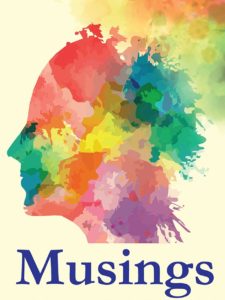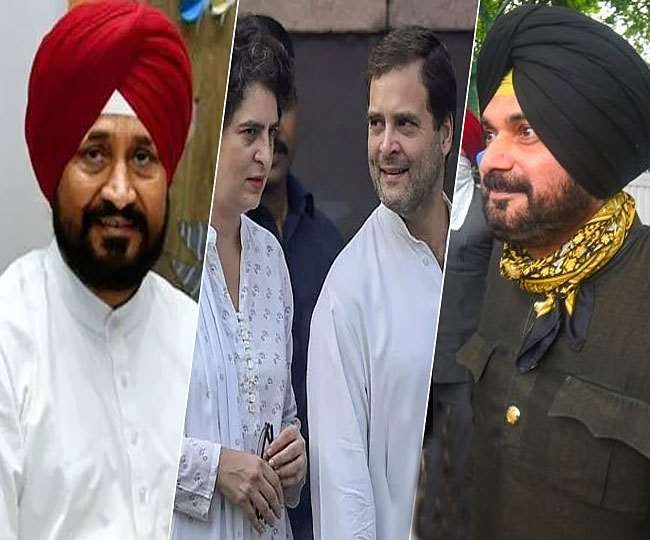Punjab Politics – When did you last shake hands with it?
 Something sinister is happening to us, to the people interested in Punjab politics. We are tracking an electoral campaign, watching the shenanigans of politicians of all hues, and wondering if the newly formed SSM -Samyukta Samaj Morcha will undercut the Aam Aadmi Party -AAP votes, if Congress will really corner a larger chunk of Dalit votes on account of Channi’s projection, or if the Akalis will emerge as a decisive factor in a post-poll hung Assembly scenario.
Something sinister is happening to us, to the people interested in Punjab politics. We are tracking an electoral campaign, watching the shenanigans of politicians of all hues, and wondering if the newly formed SSM -Samyukta Samaj Morcha will undercut the Aam Aadmi Party -AAP votes, if Congress will really corner a larger chunk of Dalit votes on account of Channi’s projection, or if the Akalis will emerge as a decisive factor in a post-poll hung Assembly scenario.
![Something sinister is happening to us, to the people interested in Punjab politics. We are tracking an electoral campaign, watching the shenanigans of politicians of all hues, and wondering if the newly formed SSM -Samyukta Samaj Morcha will undercut the Aam Aadmi Party -AAP votes, if Congress will really corner a larger chunk of Dalit votes on account of Channi’s projection, or if the Akalis will emerge as a decisive factor in a post-poll hung Assembly scenario. The debate around […]](https://www.theworldsikhnews.com/wp-content/uploads/2022/01/Punjab-elections-360x266.jpg)
The debate around it is so riveting, our punditry at numbers of seats or vote percentage so intricate and our knowledge of the Ravidasia/Valmiki/Aadharmi intra-community conflicts so abstruse that we have completely forgotten what politics is all about.
We are so enmeshed in trying to deduce or second guess the power permutations and combinations that we have lost sight of a rather abstract entity called the people.
People, as in human beings. Living, breathing human beings.
Professors of universities, from whom one could have expected better since they are invariably well-read about ethical debates and could be depended upon to raise red flags the moment our political discourse got off the tracks, have themselves turned into ham journalists, producing YouTube programs and actually (repeat, actually!) circulating them via WhatsApp groups and Facebook posts.
Punjab is now watching a political discourse that has simply dodged all major questions affecting the lives of Punjabis.
Politicians are not under any pressure to address how the life of an ordinary person will be improved via their politics. The question of rural as well as urban poverty is no more a part of the politics of any party. Announcing some cash transfers on a monthly basis is a recognition of an extreme symptom of some malignant disease affecting vast sections of society; it is not the same as talking of any possible treatment.

Even the best of the politicians is addressing, at the most, some concerns of the lower middle class. The poor, as defined by any of the endless committees of Planning Commission/Niti Aayog, do not figure in any political discourse, except one about possible buying of votes, or being bestowed with some hard cash.
Punjab is now watching a political discourse that has simply dodged all major questions affecting the lives of Punjabis.
The talk about giving people better schools – by which I understand better school buildings, infrastructure, adequate teachers and staff – is not backed up by any further supplementary talk about what education to impart. Punjab’s politics has refused to engage with the very way ‘school education’ is administered. This politics has not even broached the idea of freeing education from the vice-like grip of federal authorities who can tweak an entire lot of textbooks with a particular ideological viewpoint and then the best schools would have little choice but to teach those textbooks.
The politics is bereft of the larger challenges posed by completely dilapidated public healthcare infrastructure and a lout private health sector committing daylight robbery and targetting even the rich when they are at their weakest: suffering a stroke, caught in an accident, bleeding, struggling to breathe, or simply dying!
A system that cannot take care of the rich cannot take care of the poor. If you do not understand that, you do not understand politics.
The inane talk of mohalla clinics is far too limited an intervention, but why is it a source of worry?
The inane talk of mohalla clinics is far too limited an intervention, but why is it a source of worry? After all, it at least holds a promise or at least a kind of limited assurance about making basic healthcare available at one’s doorstep. Because while mohalla clinics do not have a bad record in Delhi and something like this might be appreciated in Punjab, the fact is that a politics that tries to sell them as its best idea rather than as the minimal first step clearly isn’t worried about your health. It is worried about how many votes will it scoop up from those houses where someone sick is fighting a losing battle because he or she cannot even afford the most basic of the medicines or treatment.
A system that cannot take care of the rich cannot take care of the poor. If you do not understand that, you do not understand politics.
When the most reformists of the politicians or political parties start gnawing at the most deprived sections of the populace for votes, then you might as well have entered a Darwinian race for political survival, but you are nowhere close to a game called politics.
Politics is a higher calling. It entails public policy for maximum good for a maximum number of people while causing minimal harm to a minimal number of people. Politics is almost a Utopian pursuit of the greater good. We all need Utopias in order to keep oriented our inner political moral compass.
Punjab, at the moment, not only seems to have lost its moral compass; but even more dangerously, it seems to have convinced itself that it no more needs a moral compass, that such an idea is a vestigial one in modern times.
Politics is a higher calling. It entails public policy for maximum good for a maximum number of people while causing minimal harm to a minimal number of people.
Politics, political analysis, political narratives, power struggles, and the discourse of the powerful – politicians, media, university professors, professionals – is now so clearly and unambiguously centred around the idea of actual executive power that it has become completely shorn of any politics.
Just recall when was the last time you heard a politician, a journalist, a professor, a practitioner in any realm of the game of power talk about how everyone will have enough to eat, enough space to grow, enough security to nurture his or her children or ideas, and have an honest shot at destiny. That was when you last heard anyone talking about this thing called politics.
Politics is almost a Utopian pursuit of the greater good. We all need Utopias in order to keep oriented our inner political moral compass.
Recall one of the 20th century’s most depressing great novels. When all is lost, and the last raiment of civilisation is torn away, comes the line: “We did everything adults would do. What went wrong?” William Golding could have said this about Punjab. We have become Lords of the Flies.
